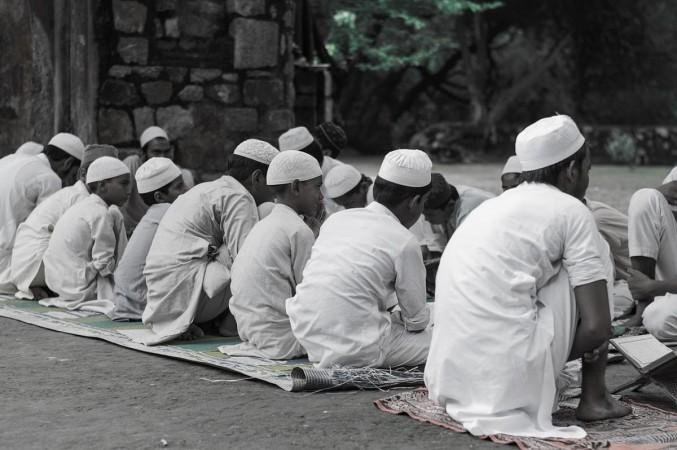The Indian Muslim population is the largest religious minority in India, accounting for approximately 14.2% of the total population. The Indian Constitution provides a formal basis for Muslims to participate in the country's public life - fully and equally. However, Indian Muslims face unique challenges and opportunities specific to their situations, varying by spatial and historical context. To address these challenges, it's crucial to consider each group's specific context and history. The Indian Constitution provides a model for the protection of the rights and interests of religious, linguistic, and cultural minorities, but the implementation of these rights requires an understanding of each group's unique needs and challenges.
The Labbay Muslims are a distinct community of Indian Muslims who have a rich history and culture that has evolved over centuries. They are primarily concentrated in the southern Indian state of Tamil Nadu but can also be found in other parts of India and even in countries such as Sri Lanka, Malaysia, and Singapore. The Labbay Muslims are estimated to number around 200,000 in India, with the majority residing in the state of Tamil Nadu. They are believed to have descended from Arab traders who came to India in the 7th century CE. Over time, they intermarried with local Indian communities, primarily the Tamil-speaking population, and adopted many of their customs and practices.

The Labbay Muslims played a significant role in the trade between India and the Middle East. They were primarily involved in the export of textiles, spices, and precious stones, which they transported to various parts of the world. Their expertise in navigation and maritime trade made them highly sought after, and they established settlements in many coastal towns in southern India. The Labbay Muslims primarily speak Tamil, a Dravidian language spoken by the Tamil people of India and Sri Lanka. They also speak Arabic, which is taught in many of their religious schools and used in their religious texts.
The Labbay Muslims have a rich and unique culture that is a blend of Arabic and Tamil traditions. They have their own distinct music, dance, and cuisine, which reflect their diverse heritage. One of their most popular forms of music is the nagoor hanifa songs, which are religious songs that blend Tamil and Arabic melodies. Their cuisine is also a reflection of their mixed heritage. Some of their popular dishes include biryani, samosas, kebabs, and mutton curry, which are common in the Middle East and India.
The Labbay Muslims follow the tenets of Sunni Islam and have their own unique customs and practices. They are a highly religious community and place great emphasis on the observance of religious rituals and practices. One of their most important religious festivals is Muharram, which commemorates the martyrdom of Imam Hussein, the grandson of the Prophet Muhammad. The Labbay Muslims are divided into various social and occupational groups. The most significant of these groups is the Marakkayar community, which is primarily engaged in trading and commerce. The Labbay Muslims also have a significant presence in the fishing industry, and many of them are engaged in fishing and related activities.
![[Representational Image] Muslim women](https://data1.ibtimes.co.in/en/full/587245/muslim-women.jpg?h=450&l=50&t=40)
The Labbay Muslims are a close-knit community and place great emphasis on family ties and relationships. They have their own unique marriage customs, which involve elaborate ceremonies and rituals. One of their most distinctive customs is the practice of purdah, which requires women to cover their faces when in the presence of men who are not members of their family. The Labbay Muslims have faced many challenges over the years, including discrimination and marginalization. They are often viewed as a minority community and have faced numerous economic and social challenges. Despite these difficulties, the Labbay Muslims have remained resilient and have continued to contribute to the cultural and economic fabric of India.
The Labbay Muslims have made significant contributions to the fields of art, literature, and music. They have produced many renowned scholars and poets, including the famous Tamil poet, Maraimalai Adigal. The community has also established many educational institutions, including schools and colleges, to provide quality education to their children. However, the Labbay Muslims still face many challenges, including poverty, unemployment, and social marginalization. Many members of the community work in low-paying jobs and struggle to make ends meet. Despite the community's rich history and contributions to Indian culture, they continue to be underrepresented in government and other positions of power.
The Labbay Muslims have also faced religious discrimination and persecution. In recent years, there have been reports of attacks on mosques and other religious institutions belonging to the Labbay Muslim community. These incidents have led to increased tension and unrest in some parts of Tamil Nadu. In response to these challenges, the Labbay Muslims have organized themselves into various groups and organizations to advocate for their rights and raise awareness about their culture and heritage. These organizations have been successful in promoting social and economic development within the community and have helped to provide support and assistance to those in need.
[Disclaimer: This is an authored article by Arshia Malik. Views expressed are author's own.]

















